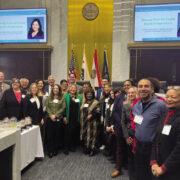Under INA 237(a)(1)(E)(i), a lawful permanent resident (LPR) who has knowingly encouraged, induced, assisted, abetted, or aided any other alien to enter or to try to enter the US in violation of law is deportable. If one knowingly drives an undocumented alien across the border, that would clearly constitute assisting in alien smuggling. But what if one picks up an undocumented alien who has already crossed into the US? Would that be considered assistance?
The case of Dimova v. Holder, Nos. 13-1550 & 13-2013, slip op. (1st Cir. April 3, 2015) illustrates the type of conduct that would constitute assistance in alien smuggling. Petitioner Milena Dimova agreed to drive her former co-worker Milan Mihaylov from Montreal, Canada to Raleigh, North Carolina. Dimova did not know that Mihaylov was undocumented. She only knew that Mihaylov could not drive the long distance.
So Dimova drove Mihaylov’s car, with Mihaylov, his wife and his 3-year old daughter as passengers. As they approached the border in Vermont at around 8:00 p.m., Mihaylov told Dimova to take a dirt road in a remote area where he and his wife would get off. The daughter, however, would remain in the car and Dimova would drive her across the border. Dimova would then pick up the Mihaylov couple in a designated area on the US side. Mihaylov gave Dimova a map of the area, which identified the location where they would be picked up. He also gave Dimova documents authorizing her to drive the car and take his daughter to the US. This was Mihaylov’s plan.
But Dimova refused to cooperate. She was shocked and angered by what she was being asked to do. The entire Mihaylov family ended up walking through the woods while Dimova drove alone across the border. She drove for several hours towards Raleigh until she became concerned about the safety of the 3-year girl she left in the woods. She turned around and drove to the designated area, where she found the Mihaylovs waiting. Border patrol agents later apprehended Dimova with the Mihaylovs. The authorities charged Dimova with alien smuggling and initiated removal proceedings against her.
Dimova contends that she did not in any way assist the Mihaylovs in entering the US illegally. She returned for the Mihaylovs not out of any desire to help in their illegal entry but out of humanitarian concern for their young daughter who had been out in the woods overnight. Despite their sympathies for Dimova, the Immigration Judge, the Board of Immigration Appeals and the First Circuit Court of Appeals all agreed that she assisted in alien smuggling.
The First Circuit analyzed the case by distinguishing Dimova’s actions in Canada and her actions in the US. The Court found that Dimova’s actions in Canada did not constitute alien smuggling because she did not cooperate in the planning and execution of the entry. She also had no duty to report the Mihaylovs’ intent when she crossed the border.
Dimova explained her actions in the US by raising three arguments. First, she argued that she did not assist the Mihaylovs in their illegal entry because the entry was already complete when she picked them up. The Court however held that “entry” has a broader meaning than mere physical presence in the country. Entry is accomplished after an alien has crossed the border and is free from official restraint. For example, in United States v. Gonzalez-Torres, 309 F.3d 594 (9th Cir. 2002), the Ninth Circuit held that an alien has entered free from official restraint if he is not discovered until sometime after exercising his free will within the US.
In Dimova’s case, the Mihaylovs did not exercise their free will in any meaningful way after their physical crossing. The only thing they did in the US was to wait overnight in a remote area which was a short distance from the border.
Second, Dimova argued that she did not render assistance because she did not act in accordance with a prearranged plan, and because there was no causal connection between her actions and the Mihaylovs’ entry. Since the Court found that the Mihaylovs had not completed their “entry” when Dimova picked them up, the next issue was whether she assisted them in their attempt to enter.
The Court held that an individual need not be physically present at the time and place of the illegal crossing to have assisted an illegal entry. The Court found that Dimova rendered invaluable assistance by plucking the Mihaylovs from their remote location and allowing them to resume their southward journey without detection. Without Dimova’s help, the Mihaylovs would have been stranded in the woods and caught by border patrol.
Third, Dimova argued that even if she assisted the Mihaylovs in their illegal entry, she did not engage in alien smuggling because she was motivated solely out of humanitarian concern for the Mihaylovs’ child. Unfortunately, the Court found that there was no exception for assistance stemming from humanitarian concern.
***
Charles Medina practices immigration law. Visit his website at medinalawgroup.net for more details. This article provides general information only and does not provide legal advice on any specific matter or predict the outcome of any legal matter. It does not invite or create an attorney-client relationship.



